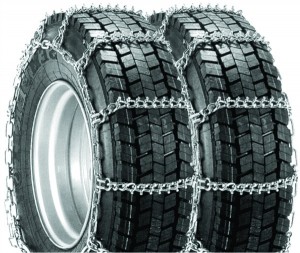By Paul Ederer, Technical Support for AW Direct

Cold, ice and snow create problems for all of us, but when your business is counted on to bring people to safety, being fully prepared is the only way you can be on the road when it counts. Fall is the time to really get everything in order for the upcoming winter season. You need to inspect the truck itself, towing tools, get supplies on hand, and look at your and your drivers’ winter clothing.
Although much has been written on vehicle maintenance, tow trucks have special needs that cannot be neglected. First, you can’t go anywhere unless the truck starts. Extreme cold temperatures can turn a battery with a few years of use into a liability. Test your battery, connections and charging system to determine if it’s in top condition and replace the battery if it’s weak. Battery protectors are available to ensure your battery does not fully discharge if something is unintentionally left on.
Inspect your hydraulic system for any minor issues that can turn into major ones when the temperature drops. Check for any cracking or chaffing of hydraulic lines, leaks at connections, even a new filter and fluid, if a change is overdue. Switch to a manufacturer recommended cold weather grade of hydraulic fluid if your winters are severe. The pneumatic system air dryers need to be working at their peak to avoid frozen moisture in the lines, as well. Drain the system and repair if you do find moisture. Engine anti-freeze needs to be tested to ensure protection as the temperature drops.
When the snow and ice fall, having good traction is a must to get around, as well as to perform recovery operations. Inspect tire tread and replace tires if needed. Check tire chains for wear and proper fit. Look for worn, bent, gouged or stretched chain links. If you do not have tire chains, consider purchasing them now before the snow flies so you can properly size and test fit them when the weather is warmer. It is much easier than ordering them in a blizzard and hoping delivery companies will be able to actually deliver them when you need them.
While checking your wrecker’s battery, you should also inspect the tools you need to help your customers’ batteries. Verify jumpstart sets have working plugs and hand clamps. A battery tester to determine the status of customer batteries is a very useful tool. Replace weak jumpstart pack batteries or worn out units so you can quickly move from call to call.
While also part of a routine maintenance program, preparing for winter is also a good reminder to lubricate your winch lines to protect them from winter moisture. Dollies should have the bearings re-packed, all fittings greased and tire condition checked. Some items need to be stocked up on to be used throughout the winter season: windshield washer fluid, diesel fuel additive, lock deicer, batteries for flashlights, ice melter, snow shovels and even disposable hand warmers.
Finally, keep yourself and your operators warm, safe and dry out on the road. Make sure winter clothing fits properly and is not overly tight. We all can change sizes from the prior season. Decreased light during the winter season and limited visibility during snowstorms require having hi-vis clothing to be as bright as possible. Inspect clothing for fading from multiple washings. Most garment manufacturers have a limit to how many washings can be done before the item must be taken out of service. Many permanent stains on a garment will also reduce the color intensity and are grounds for replacement. New garments must meet the requirements of ANSI 107-2010 Class 2 and Class 3.
In addition to a jacket or coverall, protecting the extremities is also important. We lose much heat through our heads and wearing a simple winter hat keeps us warmer. Working in snowy conditions with our hands, cotton work gloves of summer do not protect the hands from the elements. Waterproof, insulated gloves are needed to keep hands warm and dry. Footwear plays a dual role to keep our feet warm and dry but also to provide traction. Steel toe, insulated, waterproof work boots are ideal especially when worn with thermal wicking socks. In icy conditions, work boot traction can be improved further by using ice spikes. And, at the end of the day, placing your work boots on a boot dryer ensures they will be dry for the next day.
The winter season is the towing industry’s busiest season, and, with the proper preparation, you can keep your crew safe and your businesses thriving.
AW Direct–Helping You Help Them
(800)243-3194







